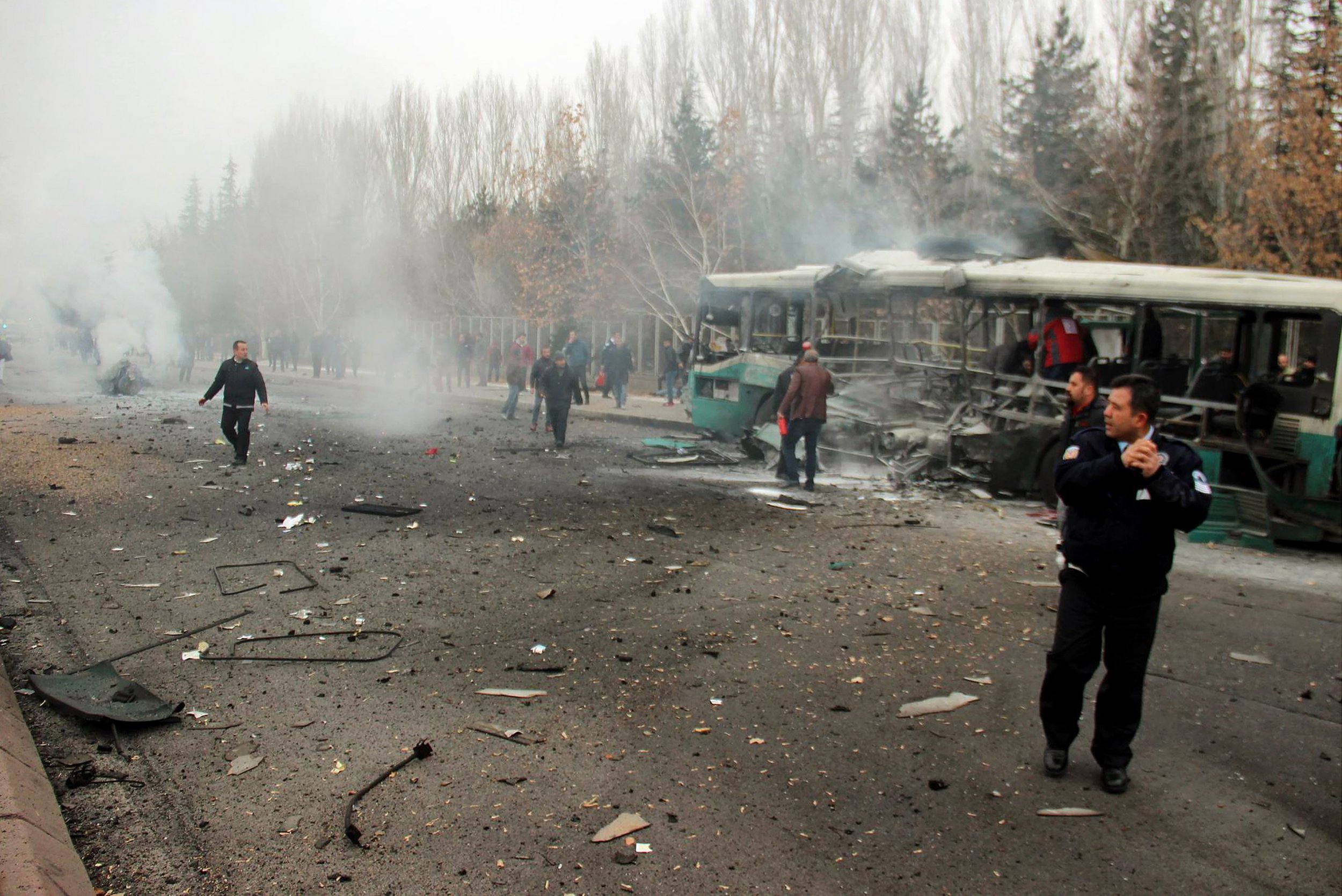
Turkish authorities have arrested five soldiers on suspicion of assisting a suicide bomb attack which left 14 soldiers dead last month and wounded 56 in the central city of Kayseri, state media reported Friday.
A bus transporting off-duty soldiers to a shopping trip was hit by an explosion after leaving the military's headquarters in the Anatolian city on December 17 2016. The Kurdistan Freedom Falcons (TAK) claimed responsibility for the attack.
The suspects, from the same headquarters as the soldiers who died in the attack, are charged with "helping a terrorist organization" and "leaking military information," such as the bus's departure time, according to Turkish state news agency Anadolu.
In a statement about the attack, TAK said that a "revenge squad" had carried out the suicide operation "successfully." It also claimed an attack on a courthouse in the western city of Izmir on January 5, in which militants detonated a car bomb outside the courthouse and two militants then engaged in a shootout with authorities, killing a police officer and a courthouse worker. Police subsequently killed the two gunmen.
The Turkish government views TAK as a radical front of the outlawed Kurdistan Workers' Party (PKK).
TAK claimed several attacks in Turkey last year, including a double bombing in close proximity to the stadium of football team Besiktas in Istanbul, which killed 46 people. It also claimed responsibility in June for a car bombing in Istanbul which left 11 people dead.
Kurdish militant groups regularly attack Turkish authorities in revenge for what they say are acts of state violence against Kurds in the country's predominantly Kurdish southeastern regions. Another of their key grievances is Turkey's imprisonment of PKK leader Abdullah Ocalan.
A decades-long insurgency between Kurdish militants and Turkish authorities has left some 40,000 people dead since 1984. Both sides had observed a ceasefire since October 2012 but this collapsed in July 2015, leading to a new round of violence.
Uncommon Knowledge
Newsweek is committed to challenging conventional wisdom and finding connections in the search for common ground.
Newsweek is committed to challenging conventional wisdom and finding connections in the search for common ground.
About the writer
Jack is International Security and Terrorism Correspondent for Newsweek.
Email: j.moore@newsweek.com
Encrypted email: jfxm@protonmail.com
Available on Whatsapp, Signal, Wickr, Telegram, Viber.
Twitter: @JFXM
Instagram: Read more
To read how Newsweek uses AI as a newsroom tool, Click here.








